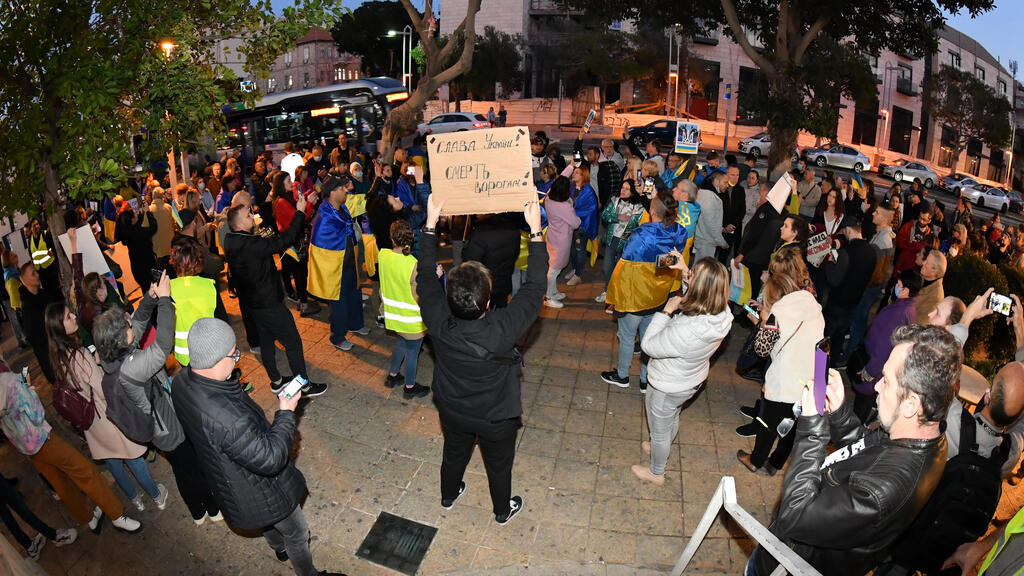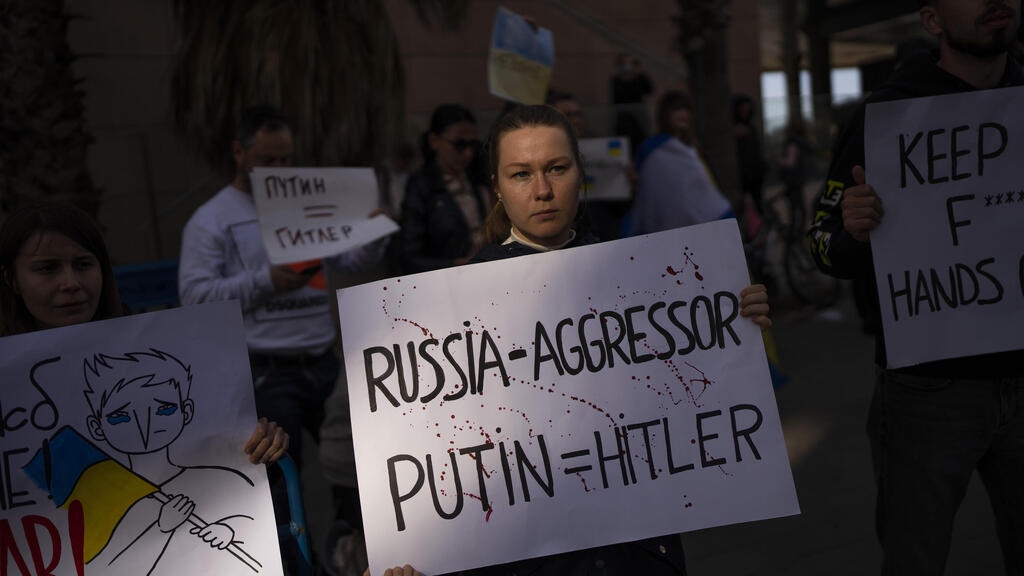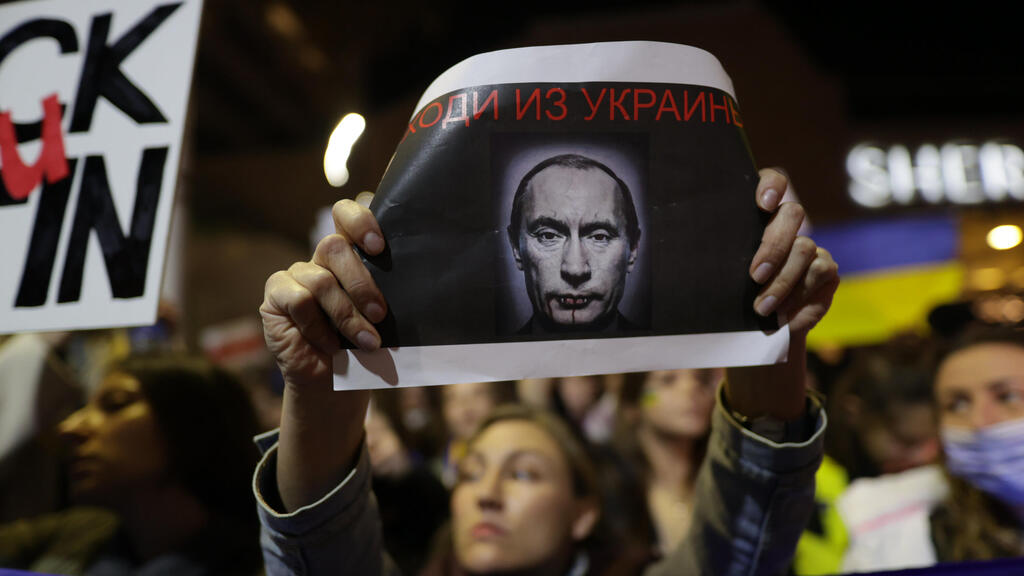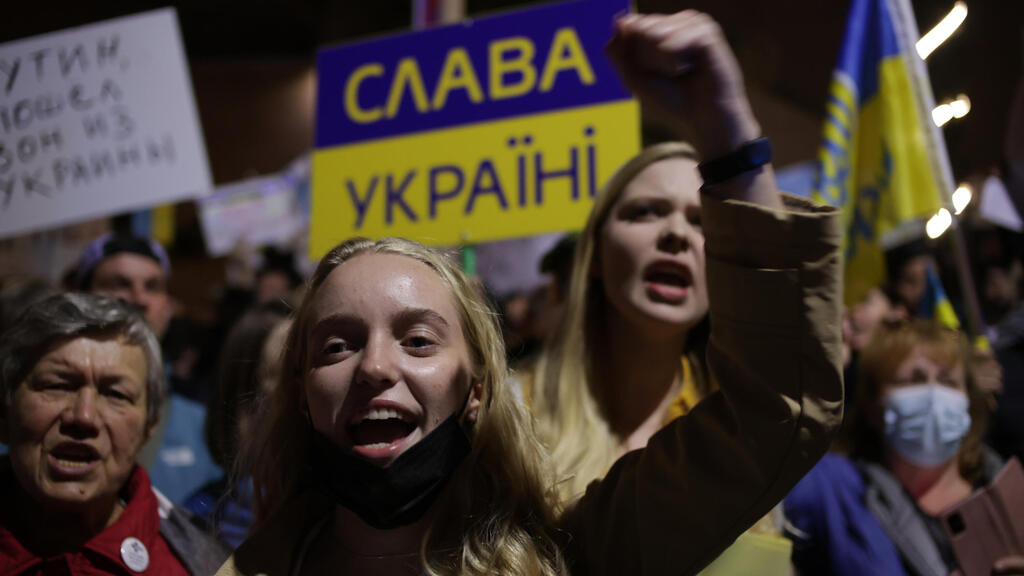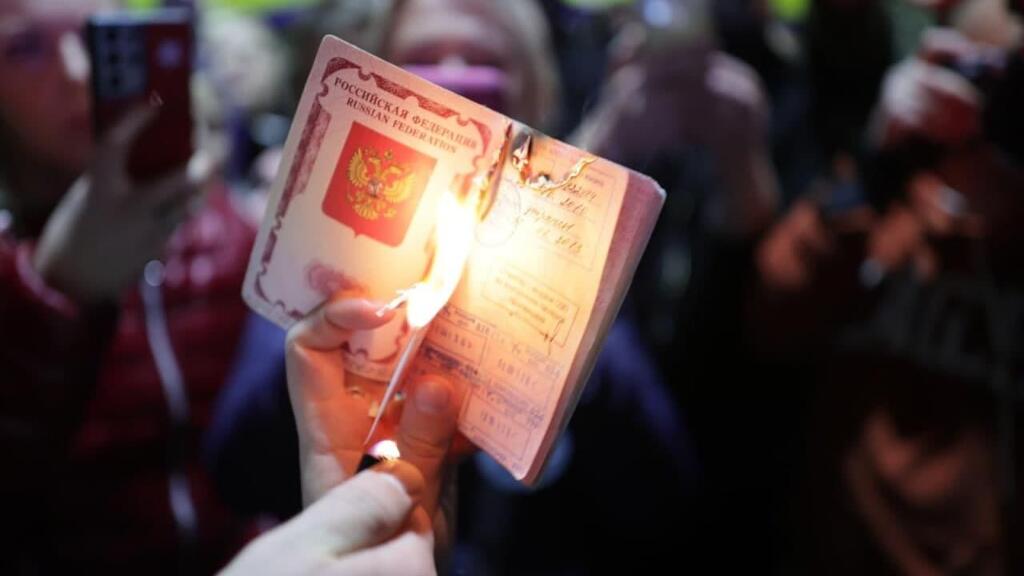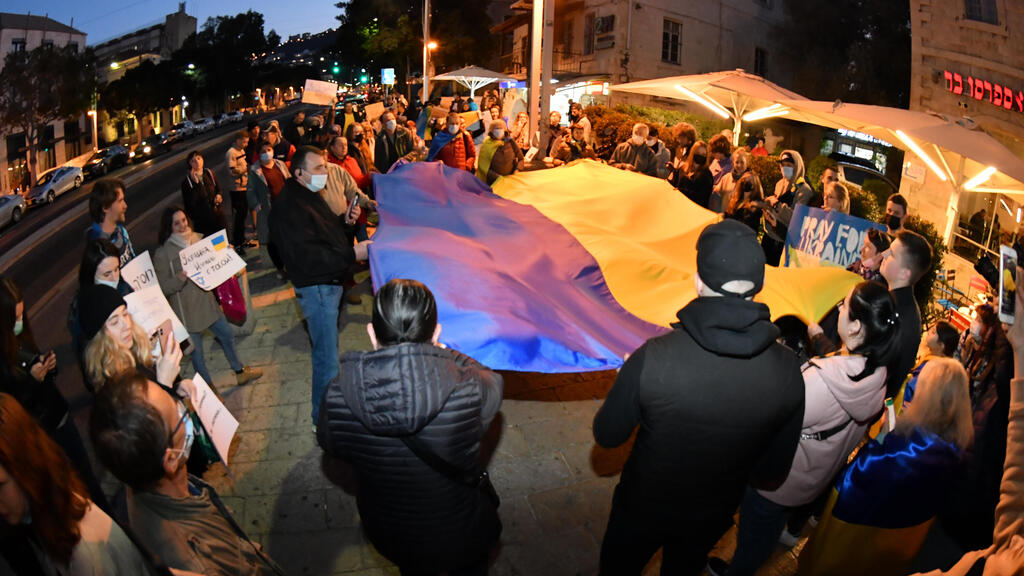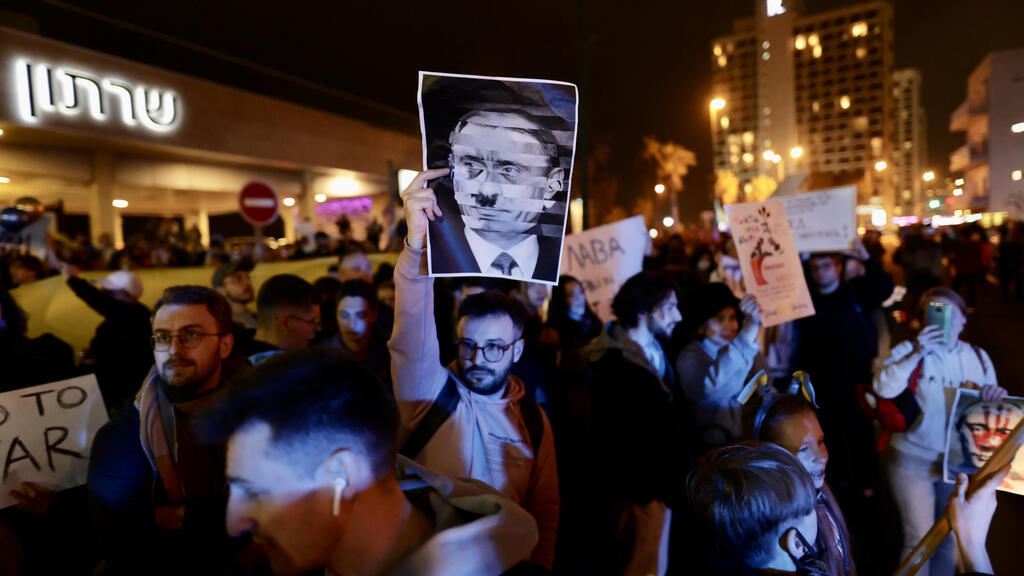Hundred of Israelis, most of whom are of Ukrainian origin, protested against the Russian invasion on Thursday night.
More than two hundred people participated in the demonstration outside of the Russian Embassy in Tel Aviv and hundreds of demonstrators marched to the Russian Consulate in Haifa.
A Similar protests also took place in Jerusalem.
In Tel Aviv, demonstrators waved Ukrainian flags and sang the national anthem, continuing despite heavy rain and sleet. One of the protesters shouted "Putin is a murderer, he's violent and dangerous".
The gate of the embassy was vandalized with graffiti that read "Stop the Russian fascism".
"As Israelis, we can't stand aside", said Ana Zrov, Chairman of the Israeli Friends of Ukraine association, in tears. "We are constantly receiving information of casualties and I can't do anything about it, we're helpless. That's why we organized a protest".
One of the organizers, Dean Amor, who immigrated from Ukraine and said he was concerned for the lives of his family members who remained there. "We aren't against Russia, we're against the Kremlin and Putin", he said, "Today he's attacking Ukraine, yesterday he was in Georgia, he's hinting at us by being in Syria. He's attacking the whole world and he's capable of attacking Israel. He's gone mad and is insane".
In Haifa, 32-year-old Roslen Santov, whom also arrived in Israel from Ukraine only four years ago, said the world must not stay silent.
"The world can't agree to the situation in which Russia occupies another country, its the world's duty not to stay silent and help Ukraine in this war".
Meir Itkin, an organizer of the protest in Haifa, said he was pleased that people showed up. "There are not just Ukrainian immigrants, also Russian immigrants who are against Putin. I'm from Russia and I'm embarrassed by Putin's actions," he said.
"He really is like the Hitler of this generation. He feels that he's a Tsar. He wants to rebuild the empire. He wants to go back to World War I. In this event we want to show that we're all together- Ukrainians, Russians, and Belarusians," he said.
First published: 22:56, 02.24.22


